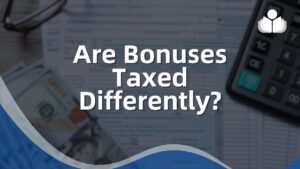No one likes to think about them, but taxes are an integral part of any business. If not done correctly, repercussions on your company can be severe. In this article, we look at how an LLC is taxed and a few ways to keep your payments as low as possible.
Use ZenBusiness to file your LLC with ease and TurboTax to make LLC tax filings easy.
What are LLC Taxes?
Nothing is certain but death and taxes. With a Limited Liability Company, just like any other business entity, you have to pay taxes on your taxable income. This includes all sources of revenue minus money spent on marketing, research, expenses, and the like. How you choose to set up your LLC plays a major role in what you pay during tax time.
LLCs do not have a defined tax structure and instead borrow a tax identity from other business types. This also grants you as a business owner the flexibility to change classifications, although the government typically only allows a switch once every five years.
How LLCs Pay Income Taxes
The government looks at an LLC as a sole proprietorship for single-member companies and a partnership for those with multiple owners. These entities do not pay income taxes on the federal level, instead passing down income to each member’s personal returns. Each member pays taxes based on their percent ownership in the company.
It is possible for an LLC to choose taxation using corporate guidelines, taking on an entirely different tax structure, one of the biggest benefits of LLCs. Let’s take a look at each LLC taxation method and what business owners should expect.
Single-member LLCs
The IRS lists LLCs with a sole owner as a disregarded entity for federal income taxes. In short, the government ignores your business structure and treats the company as if it were a sole proprietorship. The LLC itself does not have to pay taxes, with taxation being passed down to the sole member.
All income and expenses have to appear on the business owner’s federal tax return. The member records all income and expenses on a 1040 form before filing. If the company returned a profit during the year, the owner pays taxes on that income based on the tax bracket the income falls in. If operating at a loss, there’s no income to tax.
Multi-member LLCs
Multi-member LLCs deal with taxes very similarly to single-member LLCs by default. Also considered a pass-through entity, An LLC with more than one owner doesn’t pay taxes on its own, either.
In this situation, each member pays taxes on what the business makes based on their percent ownership in the LLC. At formation, LLC owners should list in the operating agreement how much each one will earn. The split does not need to be equal. Even if members decide to leave potential profits with the company, the IRS still expects taxes on the entire amount they would receive every year.
At tax time, LLCs must fill out form 1065 with the IRS indicating gains and losses for the year. It is also required to create a Schedule K-1 for each member, reporting the amount that person receives. Individual owners still need to document their earnings on a 1040 form to the government.
As a Corporation
LLCs can choose to file taxes as a C-corporation or S-corporation. Since this is not an LLC’s default tax structure, members will need to vote and agree on the change.
In a C-corporation, the company first pays taxes on gross income after deductions using form 1120. The remaining profits then get distributed to shareholders, who still pay individual income taxes. The current federal corporate tax rate is 21%, lower than most individual rates.
S-corporations work somewhat similarly to an LLC’s default tax structure. The government treats it as a pass-through entity with some deviations in how it taxes profits. Business owners opting to file as an S-corp use form 1120S.
Use ZenBusiness to register your business as an LLC
Payroll Taxes for LLCs
Any LLC with at least one employee has to collect payroll taxes and make payments to the IRS. The company withholds an employee’s share of these taxes from paychecks.
Employers are also responsible for a portion of payroll taxes that go to social security, Medicare, and unemployment benefits. The LLC uses forms 940 and 941 to declare these taxes, with the former filed annually and the latter each quarter.
A company does not pay payroll taxes when submitting these forms but rather throughout the year, as indicated by the IRS.
Self-employment Taxes for LLCs
The government does not view LLC members as employees. Therefore, any LLC business owners filing taxes as a sole proprietorship or partner are considered self-employed.
Self-employed business owners must pay the full amount of self-employment taxes toward Medicare and social security. At present, these taxes add up to 15.3%, and members have to make payments at quarterly intervals. Schedule SE is the form to document these fees.
State Taxes for LLCs
Federal taxes are fairly straightforward, but this isn’t always the case at the state level. Keep the following in mind when working in one or more states.
LLC Income Tax
There’s usually little difference in the income tax process at the state level, except that states will only tax based on relative income in that location. Businesses selling products or services in multiple locations will have to pay income tax in each state.
Read our guide on income taxes by state.
LLC Sales Tax
Most states charge a sales tax on applicable goods and services. Only Delaware, Montana, New Hampshire, and Oregon do not. It is an LLC owner’s responsibility to collect these taxes from customers at the time of sale. Each state sets its own sales tax rate.
If a company ships products across state lines, each state determines how to tax those sales. In most cases, the tax rate comes from the final delivery location of the package. A handful of states charge taxes based on the shipment’s origin instead.
LLC Business Expenses and Deductions
No matter which tax structure you choose, it’s possible to deduct certain expenses from your taxes. The expense can be anything that ultimately helps your company succeed. Common examples are startup costs, equipment, advertising, rent, and business insurance.
Any deductions come out of the total revenue your business earned in the given year. This reduction means you don’t have to pay taxes on the portion of income covering those expenses.
For example, a company with $20,000 in income with $3,000 in applicable business expenses only has to pay taxes on the remaining $17,000.
In 2018, the government passed an income tax reform law for owners of pass-through businesses. Any qualifying member can deduct up to 20% of net business income from their taxes right off the top. Keep in mind LLCs filing as C-corporations do not receive this benefit.
Use a Tax Software to Help With LLC Taxes
You’ll need to keep careful track of income and expenses throughout the year to have accurate tax returns. As you can guess, failing to properly declare all the money your company makes can lead to serious issues with the IRS.
This can be a challenge for established LLCs and even more so for a startup working through all the nuances of a new business. To help alleviate some of the pressure, using a tax software ensure nothing gets overlooked on your tax forms can be beneficial.
Tax software like TurboTax can walk you through the filing process from start to finish, including how to keep track of finances and which forms to use with the government.
LLC Taxes Frequently Asked Questions (FAQs)
Understanding LLC taxation is not a simple process. Our FAQ answers some of the most common questions about the topic.
Bottom Line on LLC Taxes
Taxes are a cumbersome but necessary part of running a business. Fortunately, LLCs allow you to choose from different tax structures that best suit your company at the time. Whether pass-through taxation or filing like a corporate entity, LLCs make the process as easy as can be.
Best Business Bank Accounts by State
Below you will find an interactive U.S map that can help you locate and compare different banks and financial institutions that offer business accounts in your area.
 Sections of this topic
Sections of this topic
















